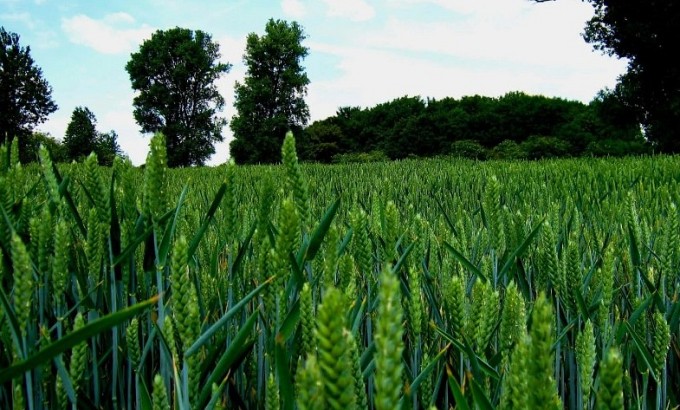
In the next decade, large quantities of genetically modified wheat will start entering the markets. Kazakhstan should continue to cultivate and sell environmentally friendly agricultural products, firmly securing this niche in the world. Scientists from Kazakhstan have written a book on biological farming, the APK Novosti agency reports. In the next decade, large quantities of genetically modified wheat will start entering the markets. Kazakhstan should continue to cultivate and sell environmentally friendly agricultural products, firmly securing this niche in the world. Scientists from Kazakhstan have written a book on biological farming, the APK Novosti agency reports.
“In the context of the global environmental crisis, climate change and degradation of agricultural soils, scientists from KazNIIZR offer practical solutions for the transition to sustainable and safe agriculture. A research team consisting of candidate of agricultural sciences, academician of the National Academy of Sciences of the Russian Federation, a well-known scientist in the field of agriculture, agrochemistry and plant growing Sholpan Bastaubaeva and doctor of agricultural sciences, professor Serik Kenenbaev, presented to the attention of specialists and the general public a fundamental monograph "Biological farming in Kazakhstan", - reported the Kazakh Research Institute of Agriculture and Plant Growing.
As reported by the author of the book Sh. Bastaubaeva, global problems, including the negative impact of modern agriculture on biodiversity, climate change and sustainability of food production, require urgent action to change the methods of managing the agroecosystem. The growth of chemicalization of agriculture has led to a significant increase in crop yields and animal productivity. The negative side of this process was the contamination of plant products with nitrates and pesticides, and livestock products - with hormones and antibiotics.
The soil accumulates residual amounts of pesticides and heavy metals, the water-physical and biological properties of soils deteriorate, the humus content decreases, and erosion processes intensify.
Insects are an integral part of biological chains and play a major role in the economy, primarily in agriculture. Over the past decades, 53% of butterfly species, 49% of beetle species, 46% of bee species, and 375 dragonfly species have begun to die out, noted Sholpan Bastaubaeva.
“According to the International Union for Conservation of Nature, one tenth of the world’s bees are currently at risk of extinction. If this mortality rate continues, all bees will disappear by 2035, which will lead to the death of plants and herbivores, which in turn will cause famine for humanity,” the scientists at the Research Institute believe.
According to Sholpan Bastaubaeva, the priority of scientific research on biologization of agriculture belongs to the Kazakh Research Institute of Agriculture and Plant Growing, which began research in this area in 1995 at a stationary organic farming site on an area of 23 hectares, where agrochemicals and pesticides were not applied for more than 30 years, and the preservation of soil fertility and the production of profitable products were carried out on the basis of the use of scientifically based and effective crop rotation schemes, the widespread use of biologization tools (organic fertilizers, green manure crops, legumes and cereals, etc.) in relation to the organic farming system.
Scientists noted that the production of eco-products for Kazakhstani farmers is promising, but not yet sufficiently developed, which opens up new opportunities for them. This is an innovative direction, and one of its tasks is to preserve local traditions and culture, use the positive experience of farming inherited from older generations.
"The production and sale of organic agricultural products is a national competitive advantage of the agro-industrial complex of Kazakhstan. According to international expert in market analysis Andrew Wark and international analyst Majid Benjilon, large quantities of genetically modified wheat will enter the market in the next 10 years. Kazakhstan should continue to cultivate and sell environmentally friendly agricultural products, firmly securing this niche in the world," the scientists noted.
For the successful development of agriculture aimed at the production of organic agricultural products, agricultural science will become a support in this, in particular in assessing the suitability of Kazakhstan's soils for organic farming, creating and introducing stress-resistant varieties and lines of grain, legumes, forage, fruit and berry and vegetable crops in order to develop the domestic market of organic seeds, developing cultivation technologies and biologized crop rotations that ensure potentially possible yield levels, introducing various biologization tools (soil improvers, biofertilizers, bioprotection) to increase soil fertility and substantiating the economic, environmental and social consequences of the transition of agricultural formations to the production of environmentally friendly products.
Of particular interest to crop production are physical methods of seed treatment, which can significantly reduce the pesticide load, which is especially important in organic farming. Since 2025, seed treatments will be carried out at KazNIIZiR using Termoseed, - said Sh. Bastaubaeva.
Termoseed is a short steam pasteurization, combined with modern technology and computer control systems, allowing for very precise seed treatment without reducing the germination and potential productivity of the crop, and E-ventus technology, based on the use of the biocidal effect of low-energy electrons.
“The combination of the two methods allows for obtaining seed material completely cleared of pathogenic microflora, and heat treatment promotes the ripening of seed material, which contains immature seeds,” the scientists explained.
The monograph is of scientific and practical interest. The authors of the book hope that it will become an indispensable assistant for managers and specialists of agricultural organizations, farmers, researchers, teachers of higher and secondary educational institutions, postgraduate students, students studying in the specialty of biology, ecology and agronomy.